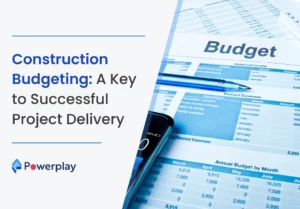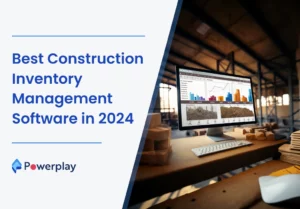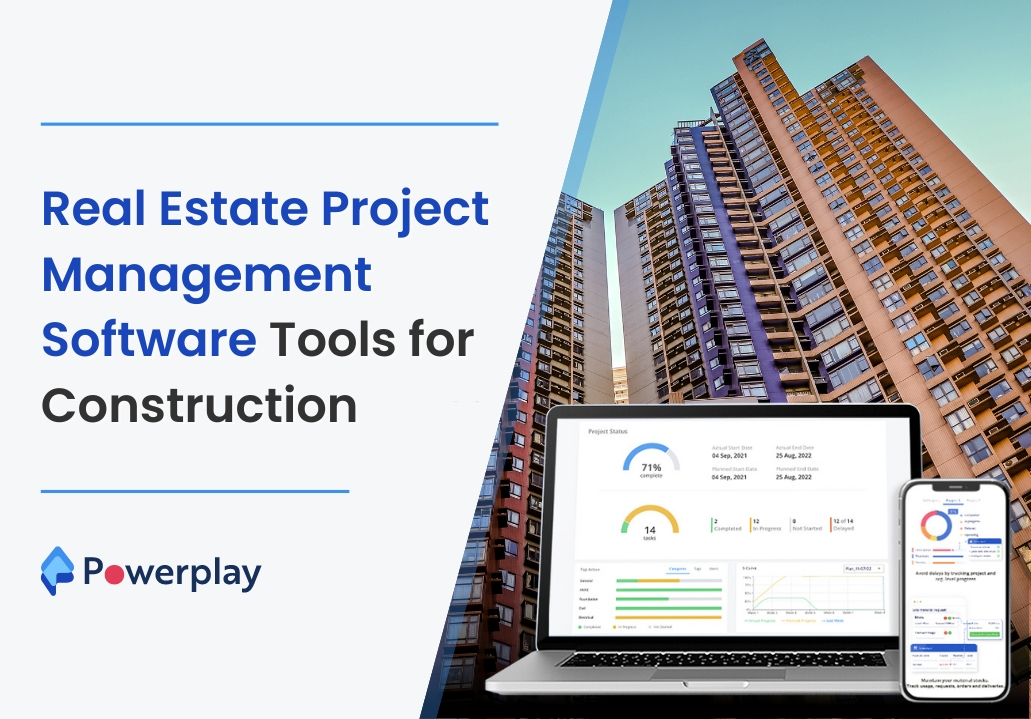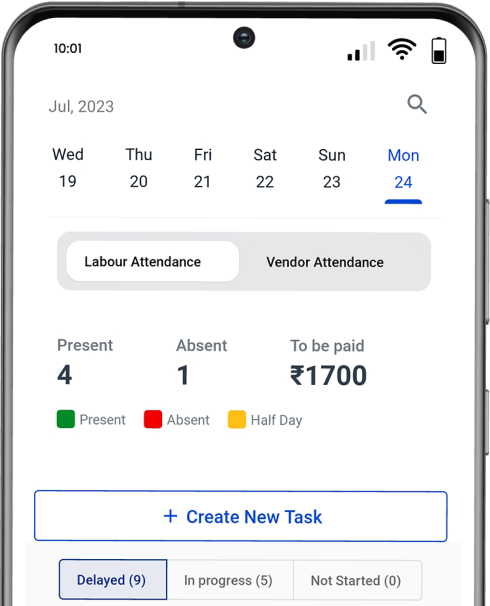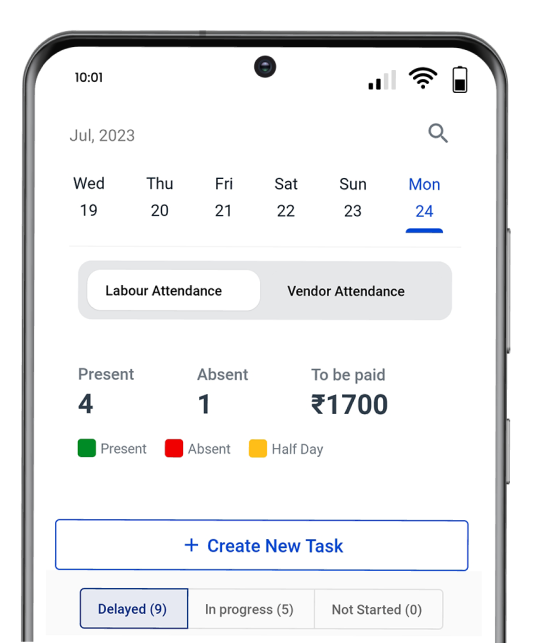Top 5 Reasons to Manage a Construction Site with Software
-
Kumar Abhishek Anand
- February 16, 2024

Table of Contents
ToggleConstruction Project Management Challenges
In an increasingly competitive market, construction businesses are under immense pressure to deliver projects on time and within budget. Achieving this often seems like an uphill task due to complexities in planning, monitoring, and controlling numerous aspects of a construction project. Many construction companies, especially those reliant on traditional methods, grapple with inefficiencies, miscommunications, and unforeseen challenges.
The Evolution of Construction Project Management
Construction businesses have been managing projects for centuries. Historically, these undertakings depended heavily on manual labor, hand-drawn blueprints, face-to-face communication, and paper-based documentation.
Over time, as the scale and intricacy of projects increased, so did the need for more systematic project management. By the late 20th century, the process involved project initiation, planning, execution, monitoring, and closure, each phase requiring meticulous attention to detail and coordination. Despite these structured processes, manual methods often made management slow and prone to errors.
Tackling Construction Management Challenges with Software
1. Inefficient Documentation
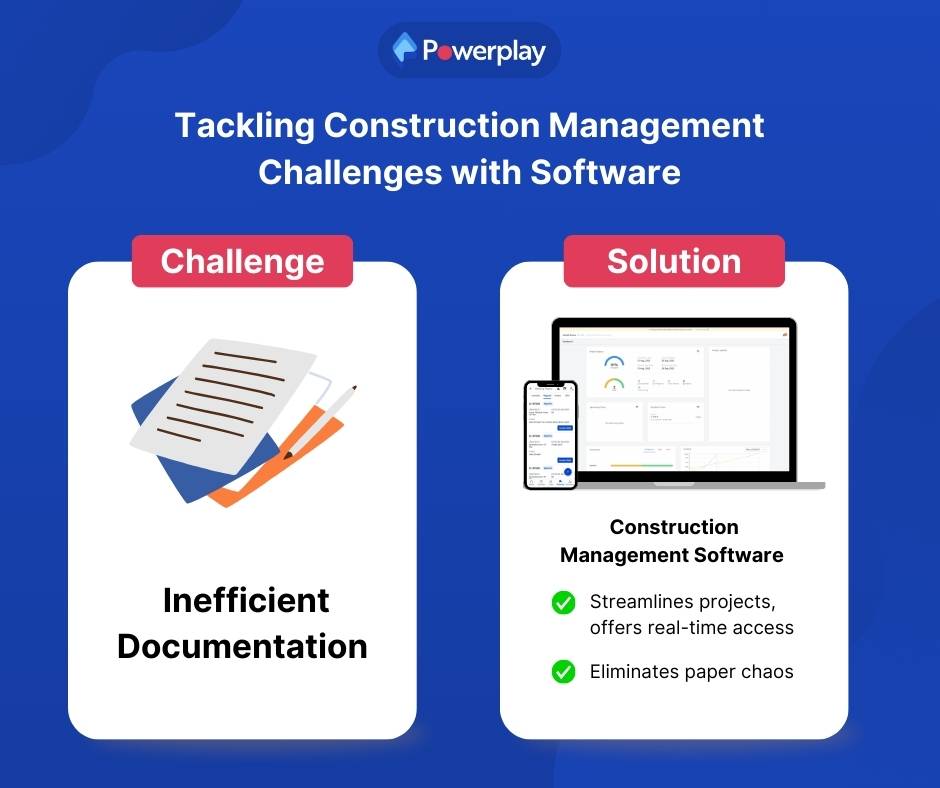
In the sprawling landscape of construction projects, the importance of accurate and timely documentation cannot be overstated. Traditional methods often involve manual entry, which opens the door for human error, misplaced documents, outdated versions of blueprints, and inconsistencies in daily reports. Delays or inaccuracies in documentation can ripple out to affect the entire project timeline and budget.
Solution – Construction management software serves as a game-changer here. It provides a centralized platform for all project-related documentation, ensuring real-time updates. Stakeholders can access the most recent versions of documents, blueprints, and plans, ensuring consistency throughout the project lifecycle. With search functions and digital backups, the hassle of sifting through heaps of paper becomes a thing of the past.
2. Communication Barriers
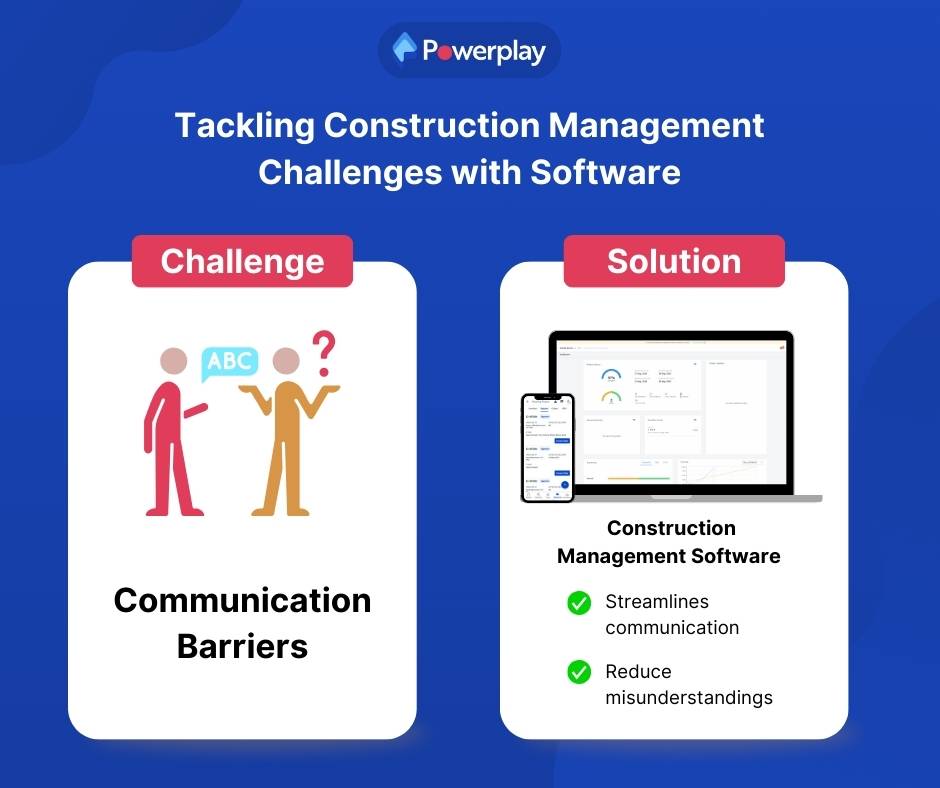
A typical construction project involves a myriad of stakeholders – architects, contractors, laborers, clients, and more. Ensuring that everyone is on the same page is paramount but extremely challenging with traditional communication methods. Face-to-face meetings, while valuable, can’t always be arranged promptly, leading to potential miscommunications or overlooked details.
Solution – A construction management app comes equipped with communication tools that facilitate seamless interactions. Features like instant messaging, real-time feedback, task assignments, and notification alerts ensure that everyone is aligned, fostering a collaborative environment and reducing the likelihood of costly misunderstandings.
3. Budget Overruns
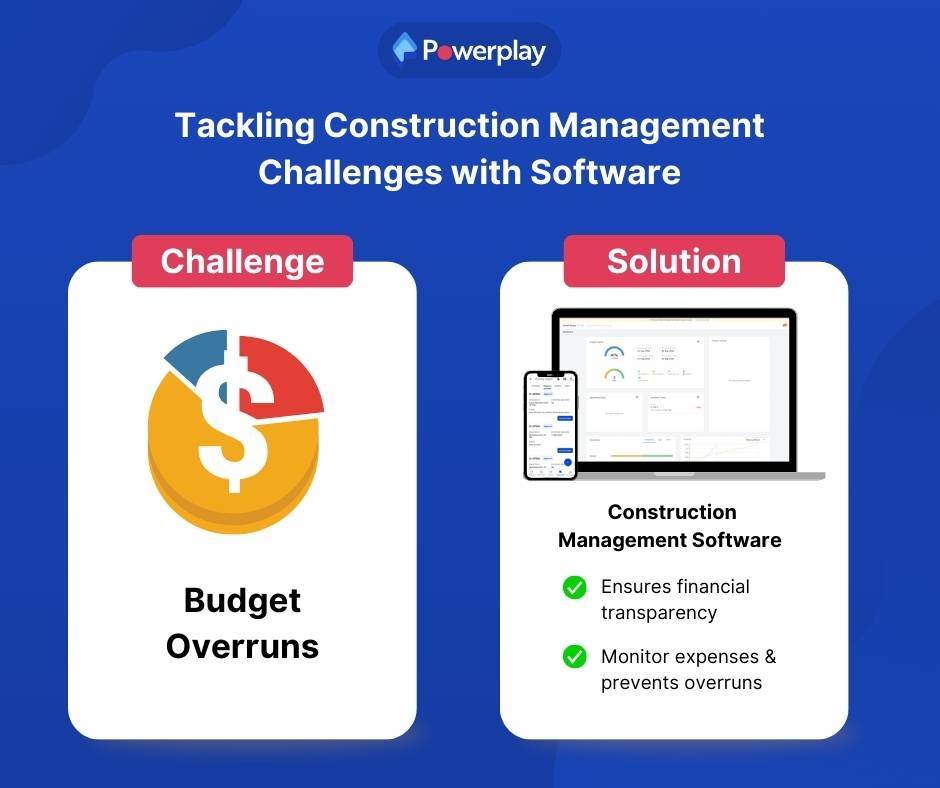
Financial management in construction is a herculean task. From labor costs and equipment rentals to material procurement and unforeseen expenses, keeping track of every penny is vital. Traditional financial tracking can be cumbersome and might not reflect real-time changes, leading to potential oversights and budget overruns.
Solution – Modern construction software offers robust financial management tools. It allows stakeholders to monitor ongoing expenses, compare them against allocated budgets in real-time, and forecast upcoming costs. This real-time financial transparency ensures that projects remain within their financial boundaries, and stakeholders are alerted well in advance of potential overruns.
4. Resource Misallocation
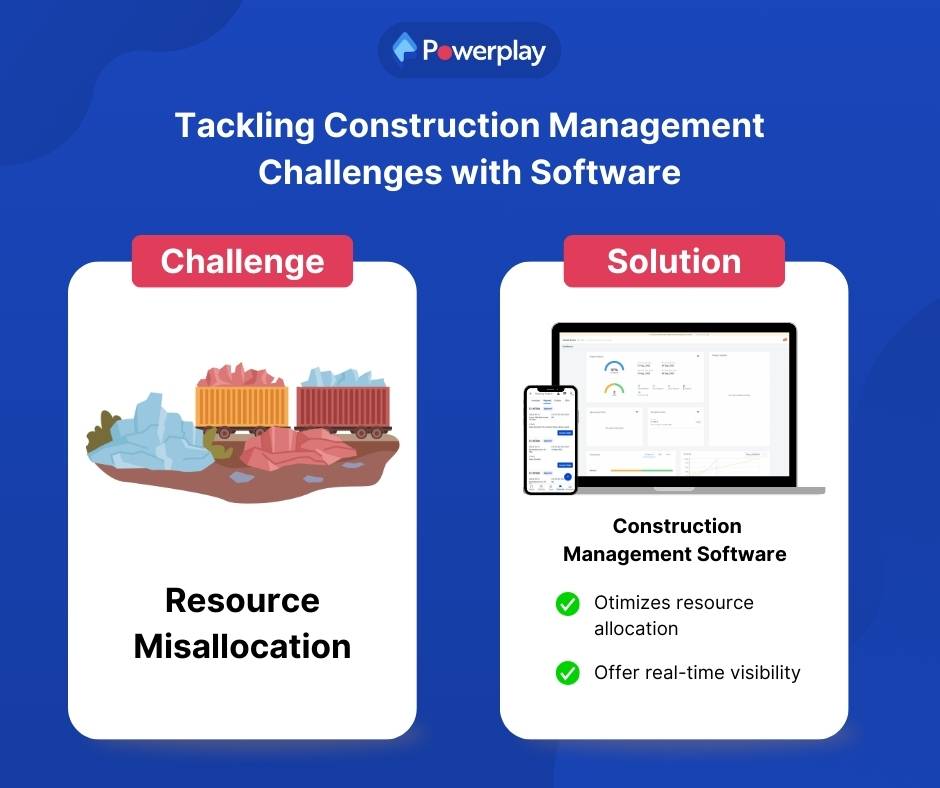
A construction project’s success is often tied to how effectively its resources – manpower, machinery, and materials – are allocated. Without an eagle-eye view of where and how resources are being utilized, they can be over-allocated to some tasks while being underutilized for others. This mismanagement can result in extended project timelines and ballooning costs.
Solution – Construction management software provides a comprehensive resource tracking system. It offers real-time visibility into resource allocation, ensuring they are utilized optimally. Moreover, with analytics and predictive tools, project managers can foresee potential shortages and reallocate resources effectively, ensuring a smooth project flow.
5. Project Delays
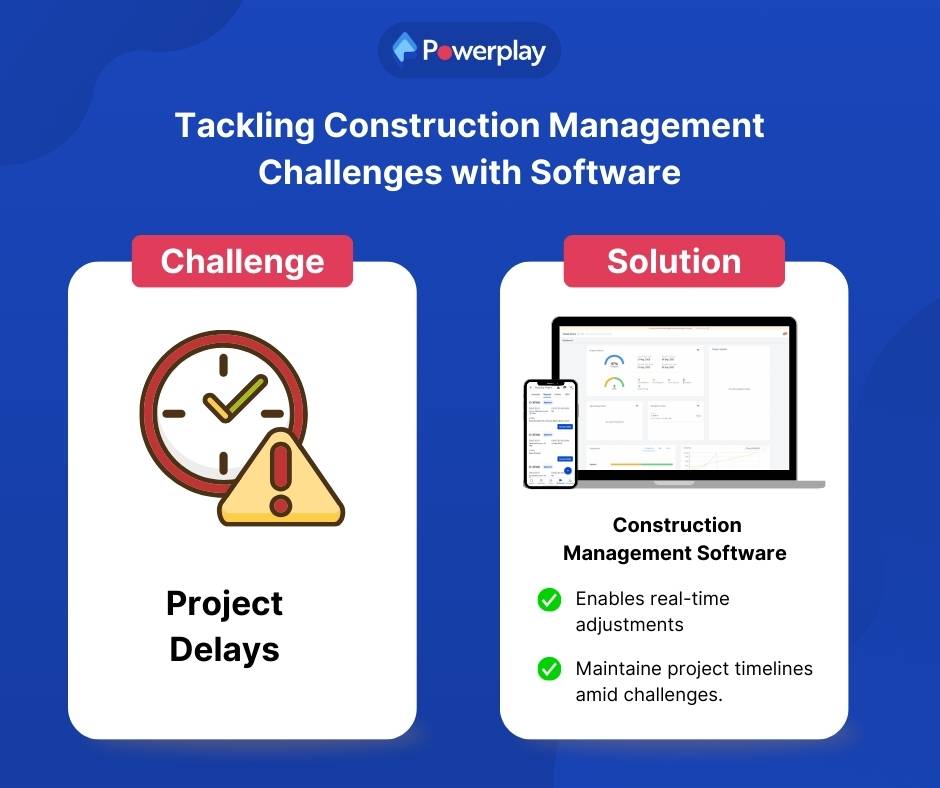
Several unpredictable factors can throw a wrench in the project’s timeline—weather disruptions, resource scarcities, unforeseen site challenges, or bureaucratic approval delays, to name a few. When these factors aren’t promptly addressed and communicated, projects can get derailed.
Solution – Construction management software like Powerplay are is built to handle such dynamic scenarios. It allows for flexible scheduling, enabling project managers to make immediate timeline adjustments as challenges arise. Stakeholders are updated in real-time about schedule changes, ensuring they can adjust their tasks accordingly. This dynamic approach ensures that, despite challenges, projects remain as close to their intended timeline as possible.
By embracing software solutions, construction businesses can not only address these challenges head-on but can also turn them into opportunities for enhancing efficiency and productivity.
Embracing the Future of Construction Management
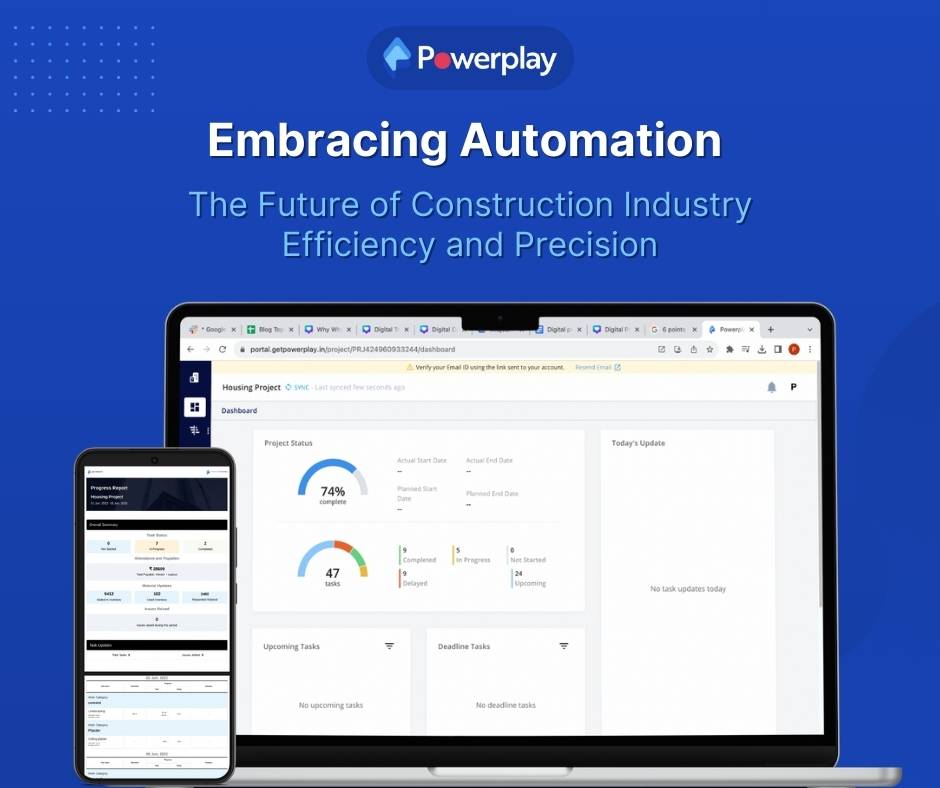
The era of relying solely on manual methods and intuition in the construction business is waning. The industry’s complexities necessitate tools that offer precision, efficiency, and adaptability. As we navigate the 21st century, automating the construction industry becomes imperative.
Be it workforce management, supply chain logistics, or the broader scope of project progress, integrating sophisticated construction management solutions is the way forward. By doing so, businesses can ensure that projects are not only completed with excellence but also with remarkable efficiency.
Share
Kumar is a digital content professional with more than 2 years of experience in Blog writing, copywriting and scripting. His passion lies in the art of creating convincing content that plays a major role in converting leads for SAAS businesses.
